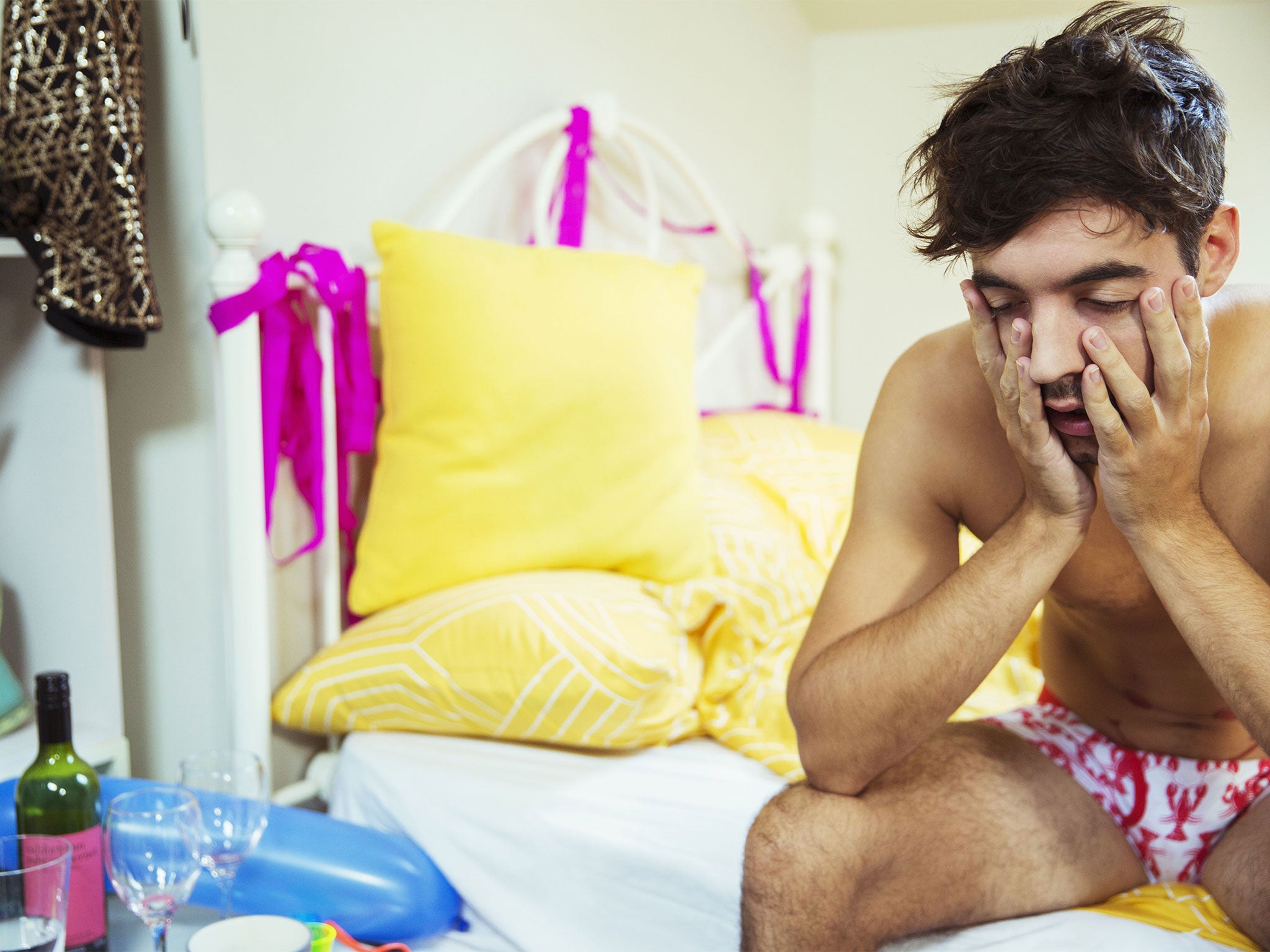Hangover cures: The only way to avoid suffering the morning after is 'to drink less alcohol', say scientists
Even drinking water the night before makes little-to-no difference

Your support helps us to tell the story
From reproductive rights to climate change to Big Tech, The Independent is on the ground when the story is developing. Whether it's investigating the financials of Elon Musk's pro-Trump PAC or producing our latest documentary, 'The A Word', which shines a light on the American women fighting for reproductive rights, we know how important it is to parse out the facts from the messaging.
At such a critical moment in US history, we need reporters on the ground. Your donation allows us to keep sending journalists to speak to both sides of the story.
The Independent is trusted by Americans across the entire political spectrum. And unlike many other quality news outlets, we choose not to lock Americans out of our reporting and analysis with paywalls. We believe quality journalism should be available to everyone, paid for by those who can afford it.
Your support makes all the difference.Hangover cures, whether it be drinking coffee, downing a fizzy drink, tucking into a fry-up or even the 'hair of the dog that bit you' are pretty much a waste of time and effort, scientists have concluded.
Even drinking water, they say, will fail to prevent anyone incautious enough to overdo the alcohol from suffering a hangover the morning after.
There is, they say, no escape. Everyone pays the price for boozing, according to tests carried out with 826 Dutch students who answered questions – once the worst effects had worn off – about their most recent heavy drinking session.
Just over half said they had eaten after drinking but this appeared to have little effect on the severity of their hangovers.
Lead scientist Dr Joris Verster, from the University of Utrecht in the Netherlands, said: "From what we know from the surveys so far, the only practical way to avoid a hangover is to drink less alcohol.
"Those who took food or water showed a slight statistical improvement in how they felt over those who didn't, but this didn't really translate into a meaningful difference."
Researchers concluded that even seasoned drinkers who consider themselves immune to hangovers are simply deluding themselves.
An estimated 25 to 30 per cent of drinkers maintain they can down unlimited amounts of beer or wine safe in the knowledge that they will wake up refreshed and clear-headed the next day.
The scientists calculated the blood alcohol levels of a group of 789 Canadian students who were questioned about their drinking in the previous month and found that four fifths (79 per cent) of those who claimed not to experience hangovers had actually drunk less than they thought.
Their average post-drinking blood alcohol level was less than 10 per cent. While still around twice the safe driving limits of many European countries, it was not enough to lay them low the next day.
"In general, we found a pretty straight relationship; the more you drink, the more likely you are to get a hangover," said Dr Verster. "The majority of those who in fact reported never having a hangover tended to drink less - perhaps less than they themselves thought would lead to a hangover."
The results of the study were presented at the European College of Neuropsychopharmacology's annual meeting in Amsterdam.
Commenting on the research, psychologist Dr Michael Bloomfield, from University College London, said: "Throughout the world the economic and social costs of alcohol abuse run into hundreds of billions of euros per year. It's therefore very important to answer simple questions like 'how do you avoid a hangover?'
"Whilst further research is needed, this new research tells us that the answer is simple - 'drink less'."
Join our commenting forum
Join thought-provoking conversations, follow other Independent readers and see their replies
Comments